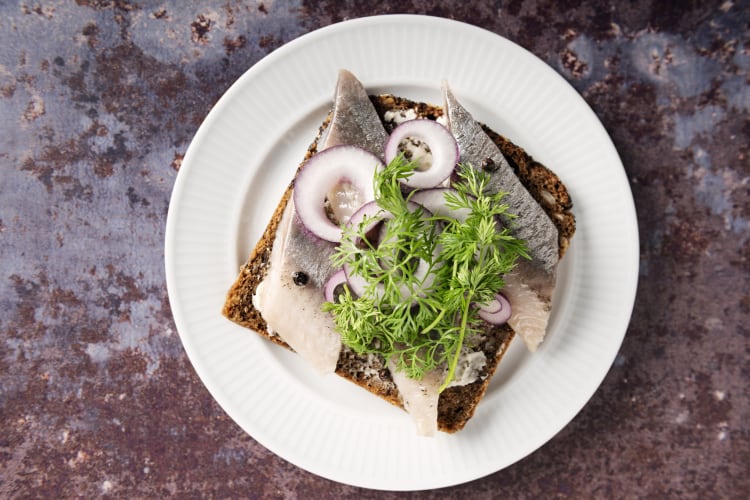The standard Mediterranean diet aims to follow the traditional eating patterns common in countries around the Mediterranean. It emphasises consumption of whole grains, fish, vegetables and olive oil, alongside modest consumption of red meat, eggs and dairy. So how is the ‘green’ Mediterranean diet different and does it offer any additional health benefits?
A ‘green’ Mediterranean diet refers to the modified Mediterranean diet first introduced by the DIRECT-PLUS trial research team in Israel, led by Prof. Iris Shai, director of The Health & Nutrition Innovative International Research Center at the Ben-Gurion University of the Negev. It is further enriched with dietary polyphenols and is lower in red and processed meat content than the traditional healthy Mediterranean diet.
As well as adjusting the diet of participants in DIRECT PLUS to meet the criteria of the Mediterranean diet and cutting processed and red meat, the trial included a daily intake of walnuts (28 grams), 3-4 cups of green tea/day and 100 grams (frozen cubes) of duckweed green shake/day. The aquatic green plant duckweed is high in bioavailable protein, iron, B12, vitamins, minerals, and polyphenols and substituted meat intake, the researchers noted.
This dietary pattern has been linked to a number of positive effects by the DIRECT PLUS scientists. Research has demonstrated a high-polyphenol, green plant-based diet better optimizes the microbiome for autologous fecal microbiota transplantation (aFMT) procedure; that green-MED diet can amplify the remission of fatty liver; improve LDL cholesterol, glycemic control, CRP and blood pressure control; and attenuate age-related brain atrophy, as compared to the traditional, healthy MED diet.
A new study, published in the journal Genome Medicine, has now concluded that the health promoting effects previously linked to the green Mediterranean diet are the result of changes in the gut microbiome.
In the large-scale clinical interventional trial the researchers found that diet has a ‘striking effect’ on the microbiome. The gut microbiome of green Mediterranean dieters was enriched with bacteria that are known to have a significant effect on human weight and glycaemic control, the research paper explained.
Changes in gut bacteria
The results showed that while all diets induce ‘substantial changes’ to the gut microbiome community, the changes of green-MED dieters are ‘much more pronounced’.
The beneficial changes in the gut of green MED dieters were attributed to the tendency of this novel diet to specifically affect the rare bacteria in the subjects’ intestines. This could be because the ‘prominent component of the diet’ – duckweed - is new to the Western palate. Consumption could therefore allow ‘usually concealed microbes to flourish’ under the new gut environment induced by the plant.
The green MED diet induced specific microbial changes, including enrichments in the genus Prevotella, a bacteria known for its positive effects on glucose metabolism and insulin sensitivity, while also promoting genetic pathways involved in the reduction of branched-chain amino acids, compounds that are well linked to insulin resistance.
The researchers were able to show that by modifying specific gut microbes through dieting, the gut microbiome constitutes a valuable mediator between the green dietary pattern, and its effects on weight loss and reduced cardiac risk.
"These findings may strengthen our understanding regarding the significant cross-talk between our nutritional intake, the microbiome and clinical outcomes," said Prof. Shai.
“We aimed to discover how the green MED diet affects the health of its consumers. The favourable clinical results were substantial,” added Dr. Ehud Rinott, first author and member of the BGU School of Public Health. “We hope that by unravelling the role of the gut microbiome in the diet’s effect, we can further improve and personalize diets in the future."
Source
‘The Green Mediterranean diet modifies the bacterial population in our gut, with specific bacteria mediating weight loss and cardiac risk reduction
Genome Medicine
DOI: 10.1186/s13073-022-01015-z




